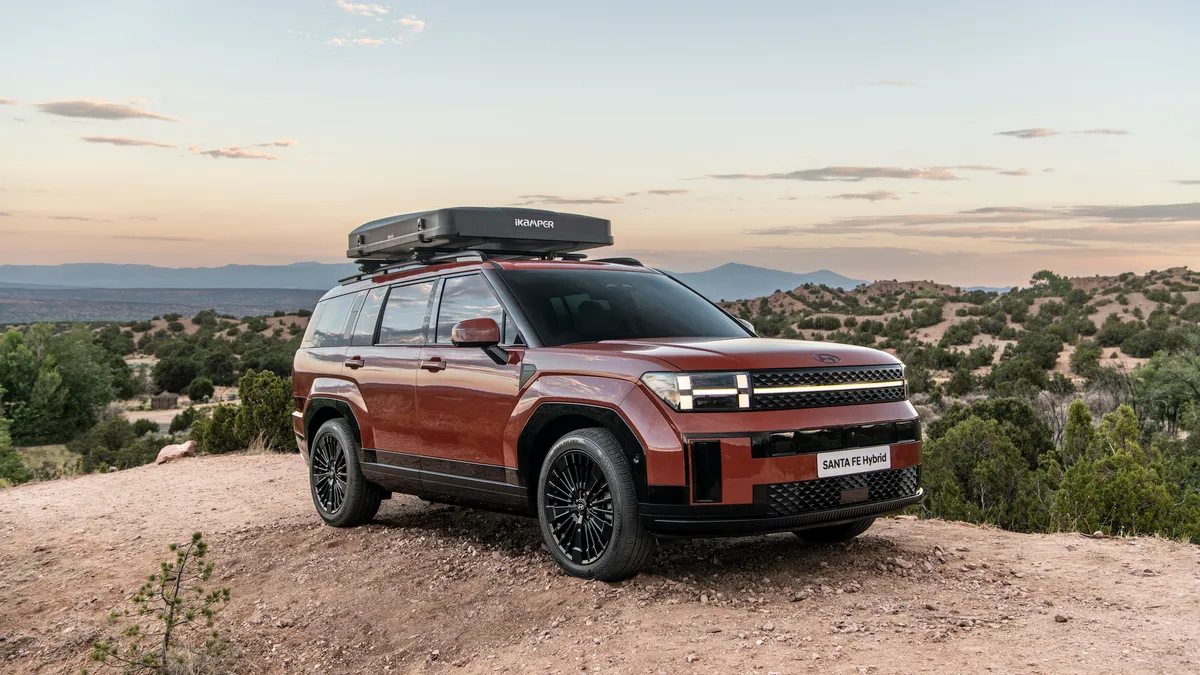Dive Brief:
- Hyundai Motor Group reported first quarter revenue of KRW 40.66 trillion ($29.6 billion) in the first quarter of 2024, a 7.6% increase from the same period a year ago, the automaker announced in a press release last week.
- Hyundai’s first quarter revenue is its highest in company history and was boosted by sales of more than 1 million vehicles globally in Q1.
- However, Hyundai reported that its electric vehicle sales declined in Q1 and year over year, so the company will increase hybrid vehicle production at its dedicated EV factory being built in Georgia.
Dive Insight:
Hyundai and other automakers are facing declining demand for fully electric vehicles. The company reported that EVs accounted for 4.5% of its total vehicle sales in Q1, a drop from 6.5% a year ago.
The automaker’s total electrified vehicle sales were 153,519 units in Q1, a 4.8% decline compared to the same period last year. Of this amount, Hyundai reported hybrid vehicle sales of nearly 98,000 units in Q1, which is a 16.6% increase from a year ago.
With double-digit growth in the hybrid vehicle segment, the automaker expects to start hybrid vehicle production in Q4 at its factory in Georgia. The facility was initially intended to produce only EVs and serve Hyundai’s U.S. production hub, allowing the automaker to qualify for incentives under the Biden Administration's Investing in America Agenda for building EVs locally.
In March, Hyundai announced it was speeding up the timeline to start production at the $5.5 billion Georgia manufacturing campus. The plant will have the capacity to produce up to 300,000 EVs a year.
As it ramps up production of hybrids, Hyundai plans to optimize the rest of its model lineup with a mix of EVs, SUVs and luxury models in order to boost market share and reach an operating profit margin of 8%, according to the press release.
Earlier this month, Hyundai’s sister company Kia Corp. announced a similar hybrid vehicle strategy at its annual CEO Investor Day event in Seoul, South Korea. Kia aims to expand its hybrid vehicle lineup from six models this year to nine models by 2028, with new hybrid powertrain options offered for most of its model lineup.
Hyundai and Kia’s new strategy also mirrors that of General Motors and Ford, both of which have recently announced plans to launch more profitable hybrid models and scale back EV production due to current market conditions.














